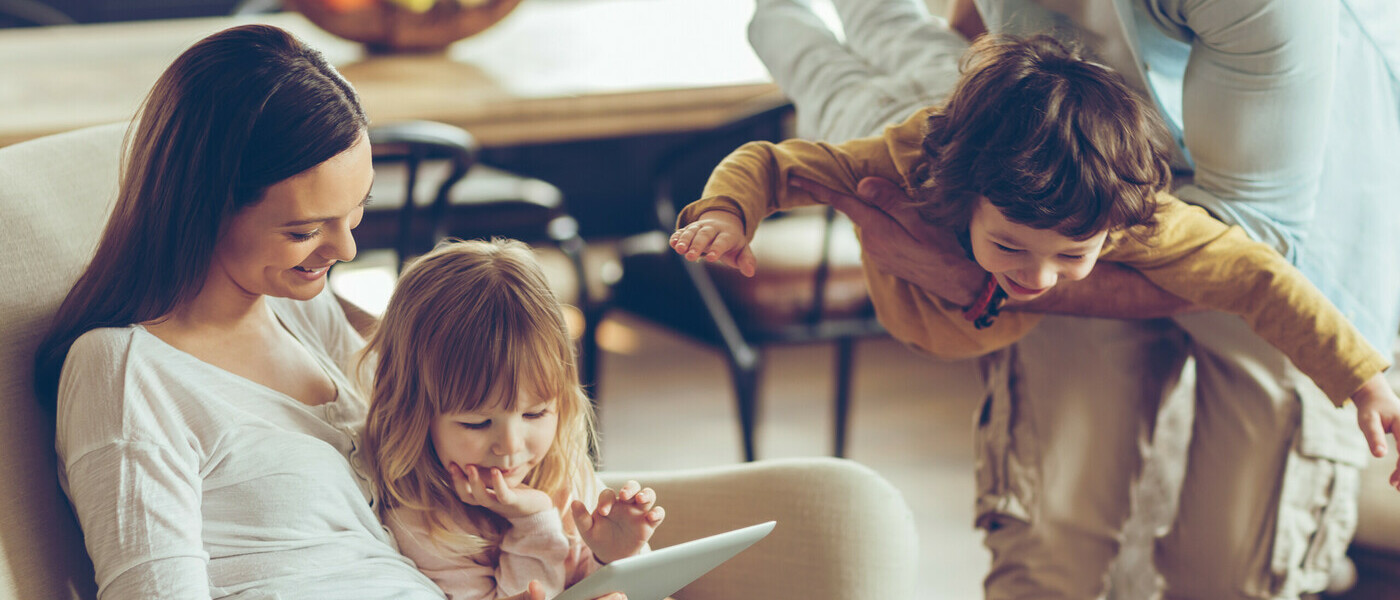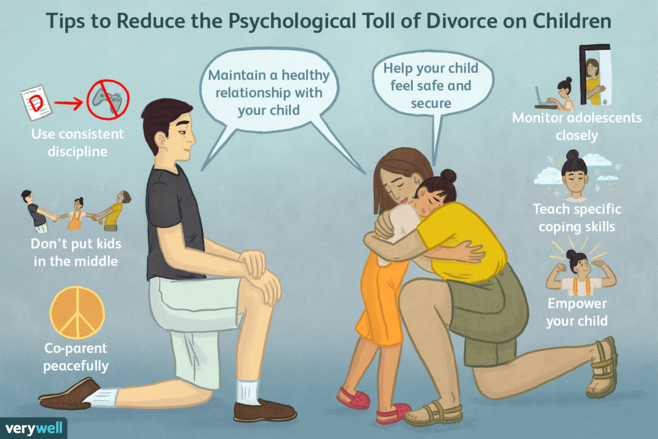How Parents or Guardians Can Help Children Cope with Divorce

Divorce and separation can be challenging for both you and your children to navigate.
While you may have the skills to process your emotions, your children may not. Your child will likely feel anxious, sad, angry, lonely, and confused. Kids may suppress their feelings for several reasons:
- they don’t want to make their parents upset,
- they don’t know how to express themselves,
- or they’re too absorbed in their grief.
For most kids, it has a short-term impact lasting roughly a year or so. During that time, they could suffer from lower self-esteem, increased anxiety and depression, less quality contact with their parents or guardians, and a decreased standard of living.
It’s important to understand how separation affects children. Divorce is as stressful for them as it is for you. Here are six ways you can help guide your child through the transition:
-
Take time to connect and be intentional with your children
Their time with you will look different now. Be mindful to keep time together a priority and do things that bring you closer together.
Children are now away from one parent or guardian for a more extended period. Plan for how they can stay attached (or connected) to the other parent. Allow the child to take a sentimental item that provides comfort or reminds them of their parent between houses. Or, plan for connection while apart, such as phone calls on a scheduled basis.
-
Open communication
Children are often unprepared when they learn their parents are divorcing or separating. Children need you to communicate with them about changes and how the separation or divorce will affect them. Give warning to big changes when possible. Set plans with children, so they know what to expect.
-
Allow them to feel their feelings
Create opportunities for your child to express how they feel. Like you, they may be grieving the loss of the family they knew. They may need to tell the story through their lens. Allow your children to talk about what they are experiencing. Let them know they can be honest with you about their feelings. Acknowledge that their feelings are real and discuss ways to help them cope with those feelings.
-
Don’t talk negatively about your ex-partner in front of or to your children
Even seemingly benign interactions can cause children to feel torn. When a child experiences parental conflict, it creates anxiety and cognitive dissonance—often causing them to align with one parent over another to ease their discomfort. As a result, their relationship with the other parent diminishes. It’s not the child’s fault; it’s their reaction to feeling caught. That bond with the other parent may be difficult to re-establish.
-
Don’t put your kids in the middle of the divorce
Children don't need specific details about their parents' or guardians' separation. Becoming active participants in the divorce can cause children to seek attention and support in unhealthy ways. It can also break down the child’s relationship with one of the parents. Communicate with your ex-partner when necessary instead of using your child to gain information.
-
Be patient with your children.
Separation is a big change for your children too. It can take time for your children to adjust to separation and divorce, just as it takes time for you to adjust. You may see different behaviours than you are used to. In some cases, children may act out feelings of sadness as aggression. Have patience and focus on the three strategies above: quality time, communication, and expression.
You certainly won’t be able to solve all of your child’s problems right away. Letting them know you understand their feelings and are listening can help.
Build the skills to guide your children through divorce or separation through our Parenting classes.
exclusively written for familycentre.org
by Jessica Tran

